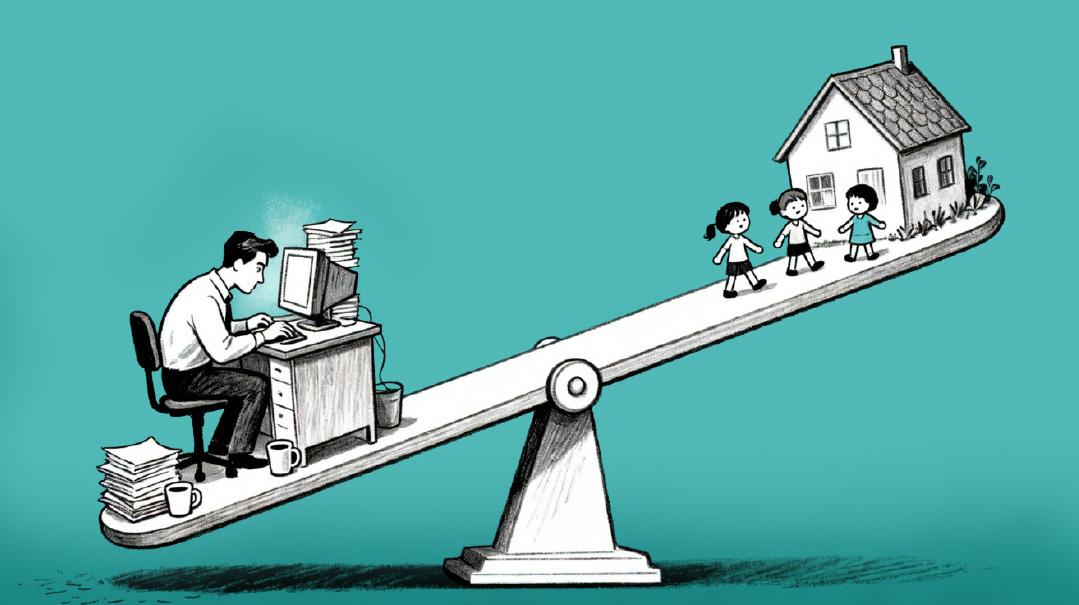Israel Is Waiting for Your Voice

Walking around the halls of the Jewish Federation’s General Assembly (GA) in Tel Aviv this week, I was reminded of a trip I had made just a few days prior, leading a group of American and Israeli women on a trip to kivrei tzaddikim in Ukraine. As we traveled the potholed roads up to the tziyun of Rabbi Zusha of Annipoli, I shared the famous story of Rabbi Zusha’s final words.
“If they ask me in the Beis Din shel Maalah why I wasn’t Moshe Rabbeinu or Avraham Avinu,” said Rabbi Zusha, “I’ll have a ready answer — I wasn’t born with the capabilities of either. But if they ask me why I wasn’t Zusha, I won’t have an answer, because I could have become Zusha.”
It’s time for the frum community to reclaim its internal Zusha!
In the weeks leading up to the GA, it became quite clear that while the Federation styled the conference agenda as a chance for dialogue between Israel and American Jewry, in reality the conversation was just straight monologue. Liberal American leaders and their local beneficiaries gathered to talk about everything that is wrong with Israel (in their eyes), especially on issues of religion and state. The organizers didn’t bother inviting even a single representative of the American frum community and found room for only two or three mainstream Israeli chareidim, mostly serving as token voices.
The tone of the conference wasn’t much different. Conference co-chair Marius Nacht opened the program by comparing Israel to a teen rife with “adolescent challenges” who needs to have a talk with a responsible adult, in this case American Jewry. Israelis all around cringed in their seats, but continued smiling artificial smiles. You can’t upset American Jews, after all.
Thankfully, Am Echad had stepped up to the plate. A group of frum leaders, who had met with Israeli officials earlier this year, weren’t going to let the Federation get away with usurping the voice of American Jews. With full-page newspaper ads, a social media campaign, and a cadre of Israel-based journalists, bloggers, and activists, the organization drove home the message that the GA had “left” a whole range of voices out of the conversation.
The reactions to the campaign were mixed. The good news was that Israeli officials and journalists were surprised to learn that the Federation doesn’t actually represent all American Jews. The ads were news to them. They realized for the first time that there are other large and influential parts of the American Jewish community and there “seems to be” an active Orthodox community in America.
The bad news was that all too often I heard the following painful words: “Orthodox? You guys only care about yourselves.” Jews from both sides of the Atlantic felt that the frum community is apathetic and uninvolved in the larger Jewish world, that we don’t care about a common Jewish future.
If anything, the GA has underlined the question of who will be the future voice of American Jews and the dilemma this creates for the frum community. Will American Jewry be represented by non-Jews of Jewish ancestry with little to no connection to actual Torah heritage? Or by committed Torah Jews, who would need to become much more vocal about their outlook and ideals?
It was Conservative rabbi Elliot Cosgrove of the Park Avenue Synagogue in New York who outlined the alternative in a rare display of cognitive dissonance. With meaningful glances, he reminded the attendants that “you and your children and grandchildren are not recognized as Jews [in Israel], because statistically… you are not going to be for the generations to come.”
Neither did he harbor any illusions about the quality of Jewish engagement. Mincing no words, he called on GA participants “to make sure that our fight with the Rabbanut is not some kind of a vicarious, compensatory act of paper-thin American Jewish identity.”
Instead, he appealed to his listeners to embrace more Jewish observance, so as to demonstrate that heterodox Judaism has a vital future in both countries. Yet neither of these points made him question his constituency’s moral right to fight the Rabbanut and the Israeli political system, while eschewing support for Israeli organizations that do not embrace the egalitarian agenda.
Cosgrove’s remarks emphasized the inevitability of a rift between the liberal Jewish establishment and Israel. Despite the self-congratulatory tone of the GA, its participants just don’t understand how foreign their outlooks are to rank-and-file Israelis. Of Israel’s 6.5 million Jews, 1.5 million are fully observant and over 2 million are traditional. Traditional Israelis may not be fully committed to halachah, but in their minds (as in the minds of most secular Jews), Judaism unequivocally equals Orthodoxy. They light candles on Shabbos, feel at home in shul, deeply respect rabbanim, and are proud in their Jewish identity. Above all, they hold staunchly conservative social outlooks, and family values are first and foremost in their mind.
During Elul and early Tishrei it was easy to meet tens of thousands of these Israelis each night, as they streamed to Selichot at the Kotel. Over a million came to pray there before Yamim Nora’im. While their white satin kippot and jeans didn’t match the usual frum garb, thorough proficiency in all the piyutim, emotion-filled voices, and teary eyes gave away a strong connection to authentic Yiddishkeit.
This is the face of the real Israel the GA participants did not get to meet. And it is with these Israelis that the American frum community can establish a real dialogue.
Nobody likes being criticized and called out. So by adopting a combative posture and entering onto a path of collision with the Israeli government, the liberal movements ironically have left us an open playing field.
Israelis are waiting for a new voice from the Diaspora. A voice that will underline commonalities. A voice that will express support and solidarity. A voice respectful of who Israel is, and not who someone else wants it to be. A voice that will truly acknowledge that no matter what happens, we are one nation, one family, bound by unconditional love.
The frum community has an unparalleled opportunity to become that voice and return relevancy to the American-Israeli dialogue.
So that we can truly remain an am echad.
Originally featured in Mishpacha, Issue 733. Leah Aharoni is the founder of Women For the Wall and a program coordinator at Am Echad.
Oops! We could not locate your form.







